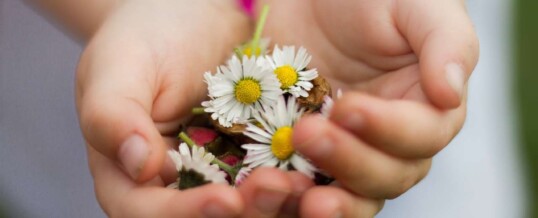
It was Christmas morning. As the family sat around the little tree, under which was a modest pile of wrapped gifts, Nina could not contain herself.
She ran to the tree, pulled her gifts away from the others and distributed them; one for Poppa, a couple for Mommy and Daddy, and one for Grandma.
She then stood by and watched, wriggling and grinning as they were opened. She was almost 4 and her babysitter had helped her make a card for each person by patiently spelling out “ I Love You” for her to write.
She decorated each one with colorful squiggles, which she encased in wrapping paper and lots of Scotch tape.
It brought to mind the time when I was 7 and had been given a little money for Christmas shopping. I searched and searched for the perfect gift for my grandmother. I finally found it at the Five and Ten Cent store: a large cross on a long chain.
I clearly remember the feeling of not being able to wait two more days, insisting that she open it early even though she was urging me to wait until Christmas morning. She loved that cross; I knew it, because she wore it on Christmas Day.
I mention these two incidents because of the differences in the ages of the children. Nina probably won’t remember her excitement about giving her gifts because she was so young. But she will have good feelings about giving that will build if she continues to be given the time and materials to create or purchase her gifts.
A 7-year-old almost always remembers the minute details and the feelings that accompany the giving of a gift.
Both these stories glow with the Spirit of Giving. Both speak to the making or the selection of the gift, and both illuminate feelings that are so powerful they temporarily outweigh any thought of “What am I getting?”
The ways in which children’s gifts are accepted will be emotionally felt and remembered for a lifetime. Will the recipient value the gifts in genuine ways, such as displaying Nina’s card on a dresser, or wearing the cross?
Good feelings about giving will be discouraged if children find their special drawings thrown out with the wrapping paper or ignored and out of sight.
Saying lovely things about a present and never again looking at or referring to it suggests the praise was insincere and the thanks empty of feeling.
When children have spent special time getting their presents ready, they are particularly sensitive to adult reactions and will track them. “Where is it now?” “Is Mommy going to wear it?” “Did he like the cookies I made with Mommy?”
These behaviors and good feelings about giving are the ones we love to see in our children and are eager to nurture.
Image courtesy of Stuart Miles/FreeDigitalPhotos.net
NOV
2023


About the Author: